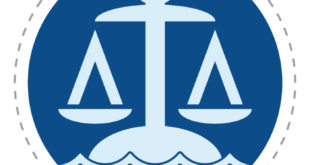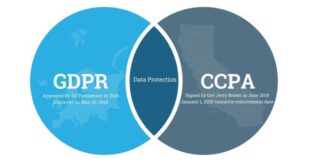When faced with the aftermath of a personal injury, finding the best lawyers for personal injury is crucial. These legal experts possess the knowledge, experience, and strategies to navigate the complexities of personal injury cases, maximizing compensation and ensuring justice for victims.
Personal injury lawyers specialize in handling various case types, including car accidents, medical malpractice, slip and falls, and product liability. They understand the unique challenges and legal nuances associated with each type of case, employing tailored strategies to achieve optimal outcomes.
Personal Injury Case Types
Personal injury cases cover a wide range of legal disputes that arise from injuries or harm caused by the negligence or wrongdoing of another party. These cases can vary greatly in their complexity and severity, from minor accidents to catastrophic injuries with long-term consequences.
Car Accidents
Car accidents are one of the most common types of personal injury cases. They can range from minor fender benders to catastrophic crashes involving multiple vehicles. Common legal issues in car accident cases include determining fault, assessing damages, and navigating insurance claims.
Medical Malpractice
Medical malpractice cases involve injuries or harm caused by the negligence or wrongdoing of healthcare professionals. These cases can be complex and require specialized knowledge of medical standards of care. Common legal issues in medical malpractice cases include proving negligence, assessing damages, and dealing with insurance companies.
Slip and Falls
Slip and fall accidents are another common type of personal injury case. These accidents can occur in a variety of settings, such as public places, workplaces, and private homes. Common legal issues in slip and fall cases include proving negligence, establishing liability, and assessing damages.
Product Liability
Product liability cases involve injuries or harm caused by defective products. These cases can range from minor injuries to catastrophic accidents. Common legal issues in product liability cases include proving the product was defective, establishing negligence, and assessing damages.
Lawyer Qualifications and Experience: Best Lawyers For Personal Injury

When selecting a personal injury lawyer, it’s crucial to assess their qualifications and experience. These factors play a significant role in determining their ability to handle your case effectively.
Key qualifications to consider include:
- Trial experience:Lawyers with substantial trial experience have the necessary skills to present your case persuasively before a jury.
- Case results:Examine the lawyer’s track record of successful settlements and verdicts in similar personal injury cases.
- Client testimonials:Positive feedback from previous clients provides valuable insights into the lawyer’s professionalism, communication skills, and ability to achieve favorable outcomes.
Questions to Ask Potential Lawyers
During consultations, ask potential lawyers specific questions to gauge their expertise and suitability for your case:
- How many personal injury cases have you handled similar to mine?
- Can you provide references or testimonials from satisfied clients?
- What is your strategy for maximizing the compensation I deserve?
- How do you handle communication and keep clients informed throughout the process?
- What are your fees and payment arrangements?
Legal Strategies and Tactics
To maximize compensation for their clients, personal injury lawyers employ a range of legal strategies and tactics. These include:
- Establishing Liability:Proving that the defendant is legally responsible for the plaintiff’s injuries.
- Quantifying Damages:Calculating the full extent of the plaintiff’s financial, physical, and emotional losses.
- Negotiating Settlements:Engaging in negotiations with the defendant’s insurance company or attorneys to reach a fair settlement.
- Preparing for Trial:Gathering evidence, preparing witnesses, and developing a trial strategy if a settlement cannot be reached.
Negotiation Process, Best lawyers for personal injury
Negotiations are a crucial aspect of personal injury cases. Lawyers advocate for their clients’ interests by:
- Presenting a Compelling Case:Clearly articulating the strength of the plaintiff’s case and the evidence supporting their claim.
- Understanding Insurance Policies:Familiarizing themselves with the defendant’s insurance coverage and limitations to maximize settlement offers.
- Leveraging Case Precedents:Citing similar cases with favorable outcomes to support their clients’ claims.
Role of Expert Witnesses
Expert witnesses play a vital role in strengthening personal injury cases. They provide specialized knowledge and opinions to support the plaintiff’s claims, such as:
- Medical Experts:Testifying about the plaintiff’s injuries, prognosis, and future medical needs.
- Accident Reconstructionists:Analyzing accident scenes and providing insights into how the incident occurred.
- Economists:Calculating the plaintiff’s lost wages, earning capacity, and other financial losses.
Case Evaluation and Fee Structure

When you contact a personal injury lawyer, they will typically evaluate your case to determine if you have a valid claim. This evaluation will involve reviewing your medical records, police reports, and other relevant evidence. The lawyer will also interview you and any witnesses to get a clear understanding of the facts of your case.
Once the lawyer has evaluated your case, they will discuss their fee structure with you. There are two main types of fee structures for personal injury cases: contingency fees and hourly rates.
Contingency Fees
Contingency fees are a type of fee structure in which the lawyer only gets paid if you win your case. The fee is typically a percentage of the settlement or verdict you receive. The percentage will vary depending on the lawyer and the complexity of your case.
Contingency fees can be a good option for people who do not have the financial resources to pay for a lawyer upfront. However, it is important to understand that you will not be responsible for paying the lawyer’s fees if you lose your case.
Hourly Rates
Hourly rates are a type of fee structure in which the lawyer charges you a set hourly rate for their services. The rate will vary depending on the lawyer’s experience and the complexity of your case.
Hourly rates can be a good option for people who have the financial resources to pay for a lawyer upfront. However, it is important to understand that you will be responsible for paying the lawyer’s fees regardless of whether you win or lose your case.
Negotiating Fees
When negotiating fees with a personal injury lawyer, it is important to keep the following tips in mind:
- Be clear about your budget and what you are willing to pay.
- Get a written fee agreement before you hire a lawyer.
- Make sure you understand the terms of the fee agreement, including the percentage of the settlement or verdict that the lawyer will receive.
Ensuring Transparency in the Billing Process
It is important to ensure transparency in the billing process with your personal injury lawyer. You should receive regular statements that detail the work that has been done on your case and the fees that have been charged. You should also be able to request an explanation of any fees that you do not understand.
Resources and Support
Navigating the aftermath of a personal injury can be overwhelming. Fortunately, numerous resources are available to provide victims with the emotional and practical support they need throughout the legal process.
These resources include:
Support Groups
- Support groups offer a safe and confidential space for victims to connect with others who have experienced similar injuries. They provide emotional support, practical advice, and a sense of community.
- Examples include the National Spinal Cord Injury Association, the Brain Injury Association of America, and the American Burn Association.
Legal Aid Organizations
- Legal aid organizations provide free or low-cost legal assistance to victims of personal injury who cannot afford an attorney. They can help with a variety of legal issues, including filing claims, negotiating settlements, and representing victims in court.
- Some well-known legal aid organizations include the Legal Services Corporation, the American Bar Association’s Center for Pro Bono, and the National Legal Aid & Defender Association.
Medical Professionals
- Medical professionals, such as doctors, nurses, and therapists, play a crucial role in providing medical treatment, rehabilitation, and support to victims of personal injury. They can also provide documentation of injuries and treatment, which is essential for building a strong legal case.
Technology
- Technology has become an invaluable tool for connecting victims of personal injury with resources and information. Online forums, social media groups, and mobile apps provide victims with a platform to share experiences, seek support, and access legal information.
- Examples include the National Spinal Cord Injury Association’s online forum, the Brain Injury Association of America’s website, and the American Burn Association’s mobile app.
Outcome Summary

Choosing the right personal injury lawyer is paramount. By carefully evaluating their qualifications, experience, and legal strategies, victims can increase their chances of a successful case. Resources and support are available to guide victims throughout the legal process, empowering them to navigate the challenges and seek justice.
Quick FAQs
What are the key qualities to look for in a personal injury lawyer?
Experience in handling similar cases, a proven track record of success, strong negotiation skills, and a commitment to client communication.
How do personal injury lawyers determine their fees?
Typically, they work on a contingency fee basis, receiving a percentage of the settlement or verdict if the case is successful.
What resources are available to support victims of personal injury?
Support groups, legal aid organizations, medical professionals, and online platforms provide emotional, practical, and legal assistance.
 Nenroll Nenroll News
Nenroll Nenroll News













